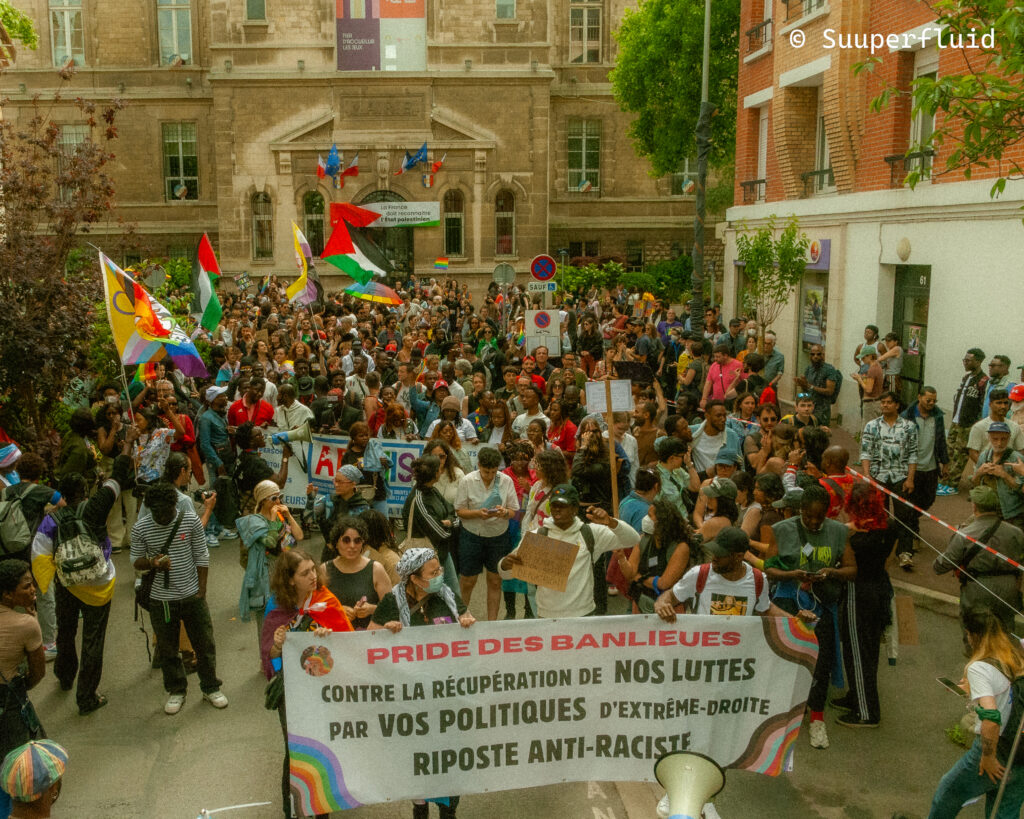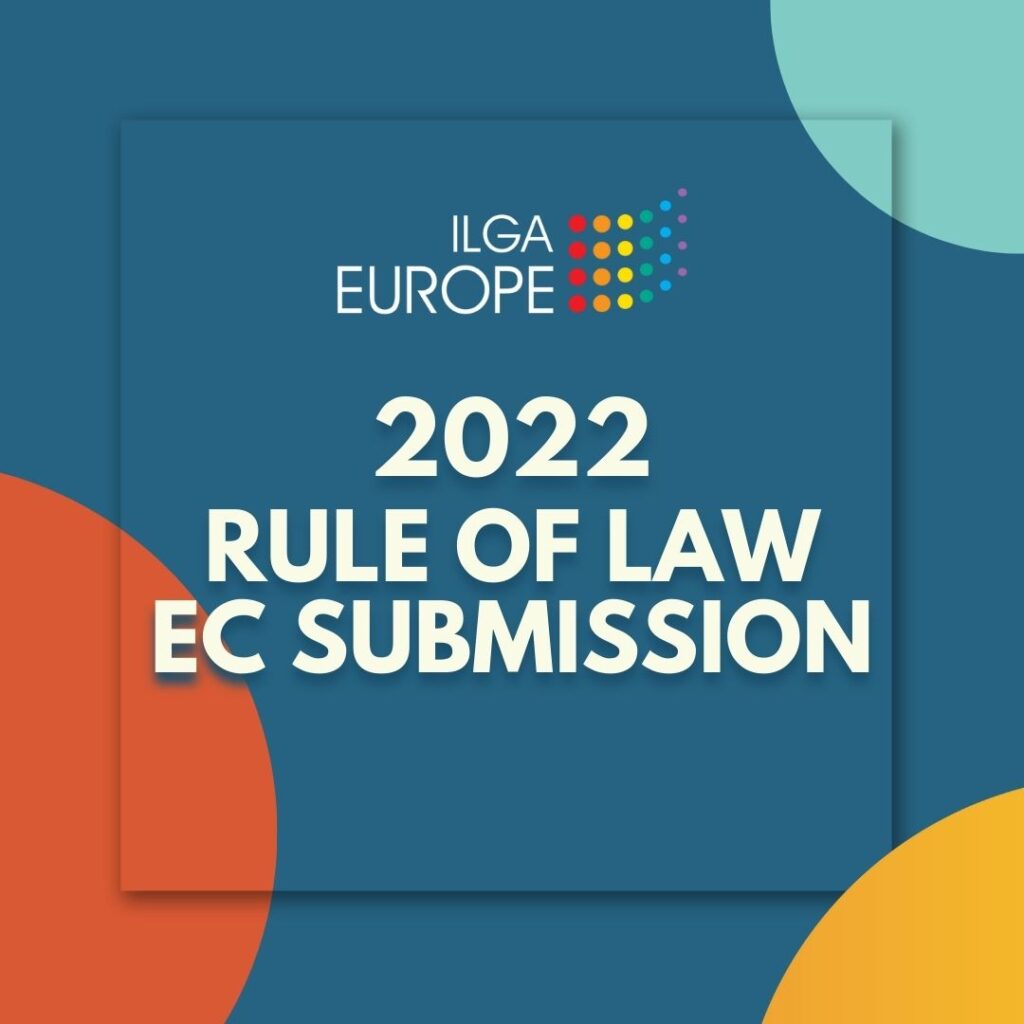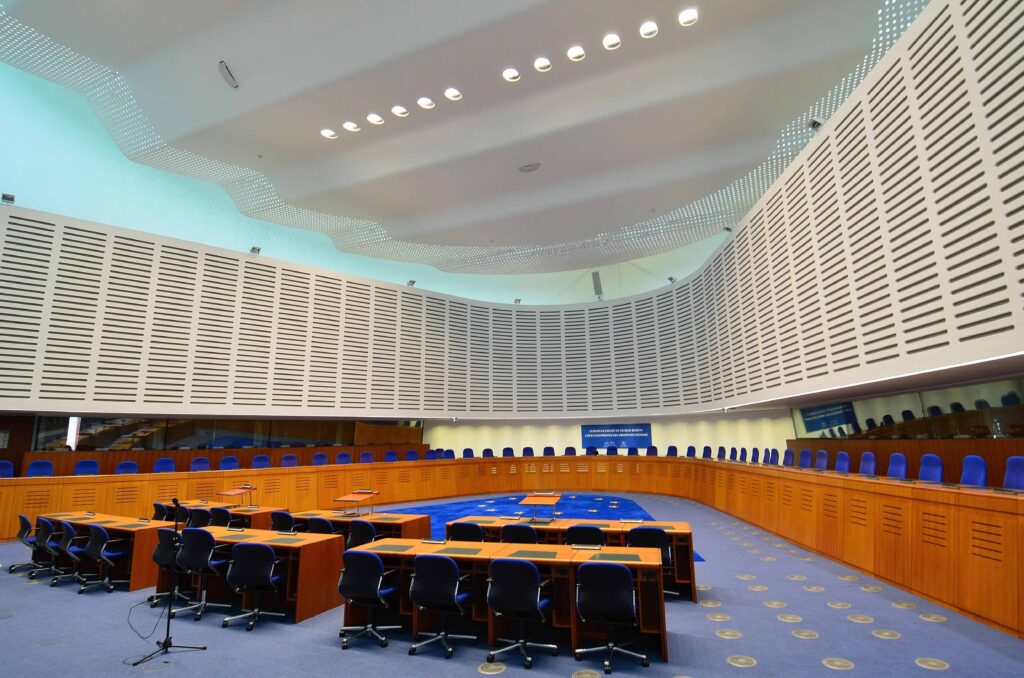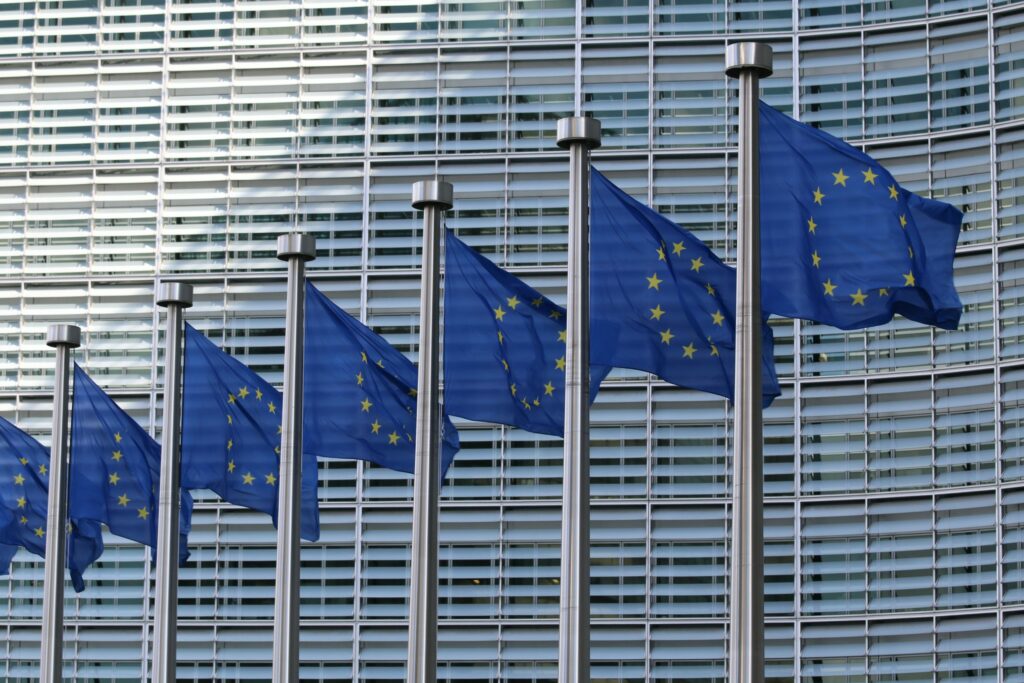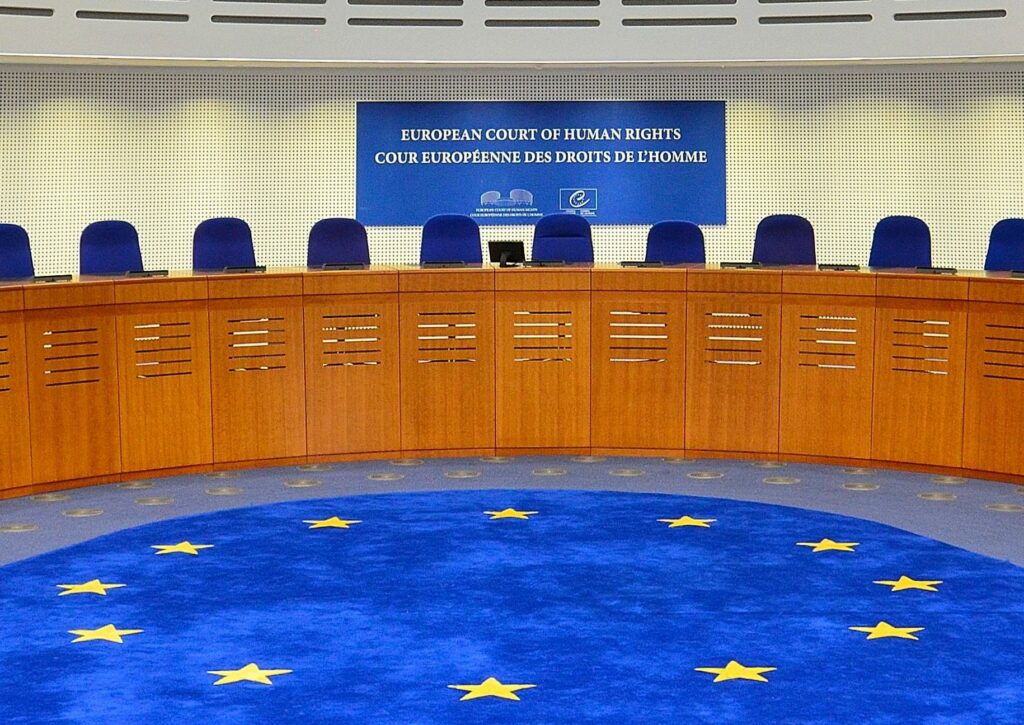France
Categories Score
The full bar chart stands for 100%, and is filled by the country category score. The colour display uses the traffic light palette, with Green representing a score closer to 100% and Red a score closer to 0%.
ASYLUM
This category looks into laws that expressly include SOGISC as a qualification criteria for seeking asylum. We also take into account other legislation, policies, instruction or positive measures by state actors that are related to asylum addressing the needs and rights of LGBTI asylum seekers and refugees.
Criteria Compliance Ratio
Each pie charts stands for a category and is divided in slices by criteria. When a country complies with a criteria – fully or in some regions – the slice is coloured.
Keep in mind the criteria have different weighting factor within a category; for example, the criteria Prohibition of medical intervention without informed consent (intersex) stands for half (2.5%) of the INTERSEX BODILY INTEGRITY category weighting factor (5%). Meaning that even if a country can only comply with this specific criteria within the category (1/4 total criteria) the category scores 50%.
More information on the categories and criteria weighting factors here.
Category & Criteria Table
The table lists detailed information and insights on legislation supporting each criterion status. Please use the filters for in-depth analysis.
n/a = not applicable, meaning the criteria didn’t exist in the previous Rainbow Map edition (PROGRESSION column)
- Complies
- Applicable in some regions only
- Does not Comply
RECOMMENDATIONS
In order to improve the legal and policy situation of LGBTI people in France, ILGA-Europe recommend:
- Developing a fair, transparent legal framework for legal gender recognition based on a process of self-determination and free from abusive requirements (such as GID/medical diagnosis, compulsory divorce or age restriction) and allowing for name change without obstacles, including no age restriction.
- Prohibiting medical interventions on intersex minors when the intervention has no medical necessity and can be avoided or postponed until the person can provide informed consent.
- Preventing conditions to access public subsidies that requires civil society to renounce their demands or refrain from criticising government actions.
Annual Review of France
In our Annual Review of the Human Rights Situation of LGBTI People in Europe and Central Asia, we examine the advances made and provide concrete examples of on-the-ground situations at national level country-by-country in the 12 months from January to December 2024.
Read our Annual Review of France below for more details and stories behind the Rainbow Map. You can also download the Annual Review chapter (.pdf) covering France.
-
In April, YouTuber Papacito was sentenced to a fine of €5,000 for homophobic insults and incitement to violence against a mayor of a small village in the South-West of France, who had to be placed under police protection.
In April, following the birth of twins to Simon Porte Jacquemus and his husband Marco Maestri, Marion Maréchal, MEP for Reconquête!, challenged the legitimacy of the two fathers’ parenthood in a tweet.
In May, trans actress Karla Sofia Gascon filed a complaint for “sexist insult based on gender identity” after Marion Maréchal, the leading European elections candidate for Reconquête!, criticised her win at the Cannes festival, claiming the institution awarded the Best Actress prize to “a man.”
In June, a complaint against Father Matthieu Raffray, accusing him of incitement to homophobic hatred and insults, was dismissed without further action. The complaint followed a video where he referred to homosexuality as a “vice” and advocated for conversion therapy.
In June, following a 2020 complaint by the associations STOP Homophobie and Mousse, the Paris Criminal Court fined Florence Besset, the editor of the online newspaper Parole de Dieu, 1000 and the payment of compensation following the newspaper’s publication of an article that included biblical statements advocating the death penalty for gay people.
In July, a municipal police officer was convicted of homophobic contempt by the Dijon criminal court for a 2023 incident involving the openly gay mayor of Auxonne. During a building inspection following water damage, the officer greeted the accompanying experts with “hello gentlemen,” but then intentionally addressed the mayor with a derogatory “hello ma’am.”
In September, French far-right politician Éric Zemmour faced criminal charges for inciting LGBTI-phobic hatred.
In October, the president of the LGBTI association ‘Bleus et Fiers’ came under threats after he spoke out against homophobic chants that took place during a football match in Paris. Following these incidents, the French Minister for Sports outlined tougher measures against homophobic behaviour during sports games.
In November, boxer Imane Khelif, who had been the target of a hate campaign and discrimination regarding her gender identity, filed a complaint following the leak of her alleged medical reports. The controversy surrounding Khelif began during the Paris Olympics, when conservative groups raised questions about her gender. (See also under Participation in Public, Cultural, and Political Life.)
-
In May, the French Ministry of the Interior released a report showing a 13 percent increase in anti-LGBTI offences in 2023, with crimes such as assaults, threats, and harassment up by 19 percent, totalling 2,870 cases. According to the report, men are predominant among both victims (70 percent) and perpetrators (82 percent), with nearly half of the offenders being under 30 and over a third under 19.
In May, the Calvados criminal court sentenced three men to prison terms ranging from two-to-four years, for attacking three trans sex workers.
In May, three individuals were taken into custody on charges of rape, robbery with extortion by an organised gang, and acts of torture and barbarity for their involvement in the homophobic attack to a 56-year-old man in his Alès home.
In May, three minors were arrested in Barberaz, for a series of thefts and homophobic attacks that occurred last April via the dating app Grindr.
In May, an officer from the Republican Security Company (CRS) number 30 stationed in Châtel-Saint-Germain was sentenced by the Metz Criminal Court to a €500 fine, €1,000 in legal costs, and a citizenship course for making discriminatory and homophobic remarks in front of several of his colleagues.
For IDAHOBIT, the town of Bram repainted its pedestrian crossings with rainbow colours, but one of them was quickly vandalised with black paint.
In June, the Paris Assize Court sentenced three young people, aged 21 to 23, to prison terms of five, seven, and eight years for ambushing two men via dating sites in January 2022.
In June, a bakery in the Montfavet district of Avignon was partially destroyed by arson and vandalised with racist and homophobic graffiti, targeting the 17-year-old Ivorian apprentice baker.
In June, four activists from the far-right student union Groupe Union Défense (GUD), including the son of a former RN elected official, were sentenced for a homophobic attack in the 6th arrondissement of Paris.
On July 2, ten young people, six of whom are minors, were arrested in connection with multiple homophobic attacks that took place in Muret and Seysses, in the Toulouse area, during the last two weeks of June.
On the night of July 8 to 9, singer Simon Vendeme, known for his activism against LGBTI-phobia, was physically attacked in Paris by an unknown intoxicated person.
On July 9, the Reims criminal court sentenced three men for aggravated theft for luring unsuspecting gay men through a dating site before assaulting, threatening, and robbing them.
In July, the Montpellier criminal court sentenced two men and a woman for a lesbophobic attack that took place during the Festival des Fanfares in early June.
In July, two men were sentenced to prison for a series of violent, gunpoint robberies orchestrated through a gay dating app in Guadeloupe. The main suspect, with a prior conviction, received a three-year prison term, while his accomplice was given two years.
In July, France saw two instances of transfemicide within a week, with a 30-year-old Peruvian trans woman and sex worker murdered by a client in her Paris apartment, and a 55-year- old trans woman who was killed with an axe by her partner in Compiègne shortly before.
In September, a man was sentenced to thirteen years of imprisonment for a series of homophobic ambushes in Paris. In the fall of 2022, the accused had trapped four men via dating apps and threatened them with a knife or a cleaver, forcing them to go down to a cellar at his parents’ house to rob them.
-
In March, France Télévisions was found guilty of failing to ensure workplace safety, wrongful dismissal, and unfair contract practices. The ruling derived from the case of Gaël Giordana, a former employee who was dismissed in summer 2023 after reporting sexual and moral harassment by a colleague.
-
In January, then-Prime-Minister Gabriel Attal spoke to the National Assembly, highlighting how attitudes have evolved in France and noting that being openly gay and serving as prime minister demonstrates significant societal change.
In March, the Minister for Gender Equality and the Fight Against Discrimination, requested that the Interministerial Delegation for the Fight against Racism, Anti-Semitism, and Anti-LGBTI Hatred report inflammatory comments to the public prosecutor.
Although she did not name the source directly, her request was prompted by recent statements from Father Matthieu Raffray, a Catholic priest who equated the fight against homosexuality with combating other “sins” like gluttony and anger and suggested that homosexuality could be “cured” by resisting “the voice of the devil.”
In early May, activist groups called for nationwide protests following the publication of a controversial Senate report on the right of minors to gender care, and of the book Transmania, which critics argue echoes harmful rhetoric against trans people.
In May, the shutters of the Le Trinquet bar in Tardets, Basque Country, were defaced with homophobic graffiti after the bar started hosting events for the Prefosta association, including Bekat’uros day celebrating LGBTI visibility.
In July, the ECtHR dismissed the case of M.A. and Others v. France, ruling that France’s criminalization of those seeking to purchase sexual acts did not violate the right to private life under Article 8 of the ECHR, a decision that prompted criticism from human rights groups. (See also under Participation in Public, Cultural, and Political life)
-
In January, the Conference of Bishops of France (CEF) advocated for “a broad and unconditional welcome” in response to the Vatican’s openness to bless LGBTI people.
-
In May, the Senate reviewed and approved on first reading a bill by Senator Jacqueline Eustache-Brinio, which proposed banning hormone treatments for minors. After the dissolution of the National Assembly and the reconstitution of the new government, the bill was re-registered at the National Assembly and was sent to the Commission of Social Affairs to be examined before a formal vote in the Hemicycle.
-
A report by SOS Homophobie recorded 2,377 cases of anti-LGBTI discrimination and violence in France, underscoring a worsening environment for LGBTI people, with a rise in online hate, which accounts for 23% of reported cases.
A Médiapart investigation revealed over 300 anti-LGBTI ambushes between 2020 and 2023, highlighting a surge in both the frequency and brutality of attacks targeting LGBTI people.
-
In March, the National Assembly unanimously passed a bill in its first reading aimed at recognising and compensating the harm suffered by gay people historically persecuted in France.
In April, the Court of Justice of the European Union heard a case challenging the French railway company SNCF’s requirement for passengers to select “Mr” or “Ms” when buying tickets. Filed by the Mousse Association on behalf of 64 people, the lawsuit argues that this practice violates GDPR and EU non-discrimination laws. In January 2025, the CJEU ruled that the practice was unlawful, stating that collecting gender markers is unnecessary and potentially discriminatory, setting a precedent for compliance with GDPR across the EU.
The DILCRAH and Sport et Citoyenneté launched the “For an Inclusive and Respectful Sport – Collection of Good Practices 2024” initiative, a collection of practical measures and recommendations aimed at creating a more inclusive and respectful sporting environment for LGBTI people.
In June, a poster campaign aimed at combating LGBTI-phobic discrimination in sports was launched by the Lyon LGBTI + centre, the regional prefecture, the City of Lyon, and the City of Villeurbanne in the Lyon metropolitan area, featuring posters that highlight the harassment faced by athletes.
(See also under Participation in Public, Cultural, and Political Life.)
-
In May, about fifty associations and over 140 public figures wrote to the then-Prime Minister Gabriel Attal to criticise the “deafening institutional silence” amid rising attacks against LGBTI people since the beginning of 2024.
-
In March, a collective of LGBTI associations filed an appeal with the Council of State to overturn the circulars which govern the procedures for changing first names and the mention of “sex” on civil status documents. The associations argued that these regulations violate trans people’s right to freely define their gender identity.
In November, left-wing parliamentary groups submitted a bill to the National Assembly aimed at simplifying the process to change gender markers on official documents. Currently, applicants are required to present evidence before a judge, such as written testimonies, to prove that their legal gender does not align with their gender identity. The proposed legislation seeks to decentralise this procedure, allowing individuals to make such changes directly at town halls, thereby streamlining the process and enhancing accessibility.
-
In March, the French Congress approved the constitutionalisation of the right for women to have a voluntary termination of pregnancy, amending Article 34 to guarantee this freedom. While the text only explicitly mentions “women’s freedom,” the Council of State clarified in December 2023 that this right must be extended to “any person who has started a pregnancy,” including trans men.
President Emmanuel Macron, in an interview with Elle magazine, reiterated his opposition to surrogacy, labelling it as “a form of commercialisation of bodies.”
In September, newly appointed Prime Minister Michel Barnier vowed to protect medically assisted procreation, the right to abortion and same-sex marriage. This pledge followed concerns about the appointment of conservative ministers, who were opposed at the time to same-sex marriage and recently to the constitutionalisation of abortion.
-
After his appointment as Prime Minister in January, Gabriel Attal was subjected to waves of homophobic and anti-Semitic comments on social media.
In January, Catherine Vautrin was appointed Minister of Labour and Aurore Bergé as Minister Delegate for Gender Equality and the Fight Against Discrimination. LGBTI activists expressed their concerns about the appointment due to their previous opposition to same-sex marriage and adoption.
In May, the Professional Football League (LFP) expanded its anti- discrimination campaign by adding the LGBTI flag to the logos of the Ligue 1 and Ligue 2 competitions.
In May, the efforts spearheaded by Pierre-Yves Bournazel, co- president of the Independents and Progressives (GIP) group on the Paris Council, led to the approval of the project for the creation of a new centre for LGBTI artistic and cultural expressions in Paris.
This year, France welcomed the Olympic games and, despite facing criticism from conservative groups, the Paris 2024 Olympic Games’ opening ceremony, directed by Thomas Jolly, achieved global acclaim while also setting a new record for the number of openly queer athletes participating in the games. For the Games, an area dedicated to LGBTI people and their allies – the Pride House – was created on the banks of the Seine. Nonetheless, the opening ceremony garnered a considerable amount of online hatred, eventually leading the Paris prosecutor’s office to launch multiple investigations into the hate speech directed at visible LGBTI figures who partook in the ceremony.
In July, the Paris prosecutor’s office announced an investigation following a complaint filed by DJ Barbara Butch, who reported receiving lesbophobic, fatphobic and antisemitic insults and threats related to her participation in the Paris 2024 Olympic Games’ opening ceremony. The prosecutor’s office noted that the national centre for combating online hatred has referred the case to the central office for combating crimes against humanity and hate crimes for an investigation into discriminatory messages based on religion or sexual orientation.
In August, French drag queen Nicky Doll filed a defamation complaint following a wave of online hate due to her performance at the Paris 2024 Olympic Games’ opening ceremony on July 26. As reported by Le Monde, the legal action targets anonymous users and British actor Laurence Fox, who labelled her a “paedophile” in a social media post.
-
In March, multiple LGBTI advocacy organisations called for the repeal of the “surname and first name correspondence table.” The organisations argued that the file tracks people who have changed their civil status, including trans people and immigrants, exposing them to risks of outing and discrimination. They highlighted concerns that this file, accessible to police, could lead to outing, discrimination, and violence against trans individuals, as well
as the potential misuse of data regarding immigrants who have Frenchified their names.
The full Annual Review for 2025 is available here.



